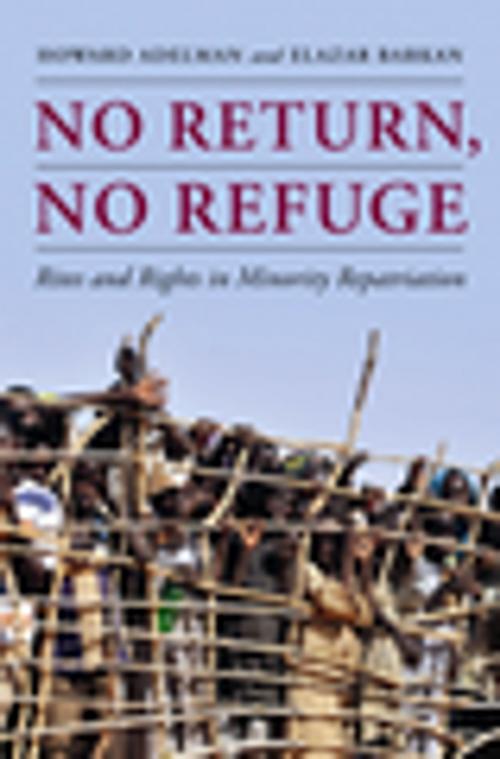No Return, No Refuge
Rites and Rights in Minority Repatriation
Nonfiction, Reference & Language, Law, International, History, World History, Social & Cultural Studies, Political Science| Author: | Howard Adelman, Elazar Barkan | ISBN: | 9780231526906 |
| Publisher: | Columbia University Press | Publication: | July 5, 2011 |
| Imprint: | Columbia University Press | Language: | English |
| Author: | Howard Adelman, Elazar Barkan |
| ISBN: | 9780231526906 |
| Publisher: | Columbia University Press |
| Publication: | July 5, 2011 |
| Imprint: | Columbia University Press |
| Language: | English |
Refugee displacement is a global phenomenon that has uprooted millions of individuals over the past century. In the 1980s, repatriation became the preferred option for resolving the refugee crisis. As human rights achieved global eminence, refugees' right of return fell under its umbrella. Yet return as a right and its practice as a rite created a radical disconnect between principle and everyday practice, and the repatriation of refugees and Internally Displaced Persons (IDPs) remains elusive in cases of forced displacement of victims by ethnic conflict.
Reviewing cases of ethnic displacement throughout the twentieth century in Europe, Asia, and Africa, Howard Adelman and Elazar Barkan juxtapose the empirical lack of repatriation in cases of ethnic conflict, unless accompanied by coercion. The emphasis on repatriation during the last several decades has obscured other options, leaving refugees to spend years warehoused in camps. Repatriation takes place when identity, defined by ethnicity or religion, is not at the center of the displacing conflict, or when the ethnic group to which the refugees belong are not a minority in their original country or in the region to which they want to return. Rather than perpetuate a ritual belief in return as a right without the prospect of realization, Adelman and Barkan call for solutions that bracket return as a primary focus in cases of ethnic conflict.
Refugee displacement is a global phenomenon that has uprooted millions of individuals over the past century. In the 1980s, repatriation became the preferred option for resolving the refugee crisis. As human rights achieved global eminence, refugees' right of return fell under its umbrella. Yet return as a right and its practice as a rite created a radical disconnect between principle and everyday practice, and the repatriation of refugees and Internally Displaced Persons (IDPs) remains elusive in cases of forced displacement of victims by ethnic conflict.
Reviewing cases of ethnic displacement throughout the twentieth century in Europe, Asia, and Africa, Howard Adelman and Elazar Barkan juxtapose the empirical lack of repatriation in cases of ethnic conflict, unless accompanied by coercion. The emphasis on repatriation during the last several decades has obscured other options, leaving refugees to spend years warehoused in camps. Repatriation takes place when identity, defined by ethnicity or religion, is not at the center of the displacing conflict, or when the ethnic group to which the refugees belong are not a minority in their original country or in the region to which they want to return. Rather than perpetuate a ritual belief in return as a right without the prospect of realization, Adelman and Barkan call for solutions that bracket return as a primary focus in cases of ethnic conflict.















